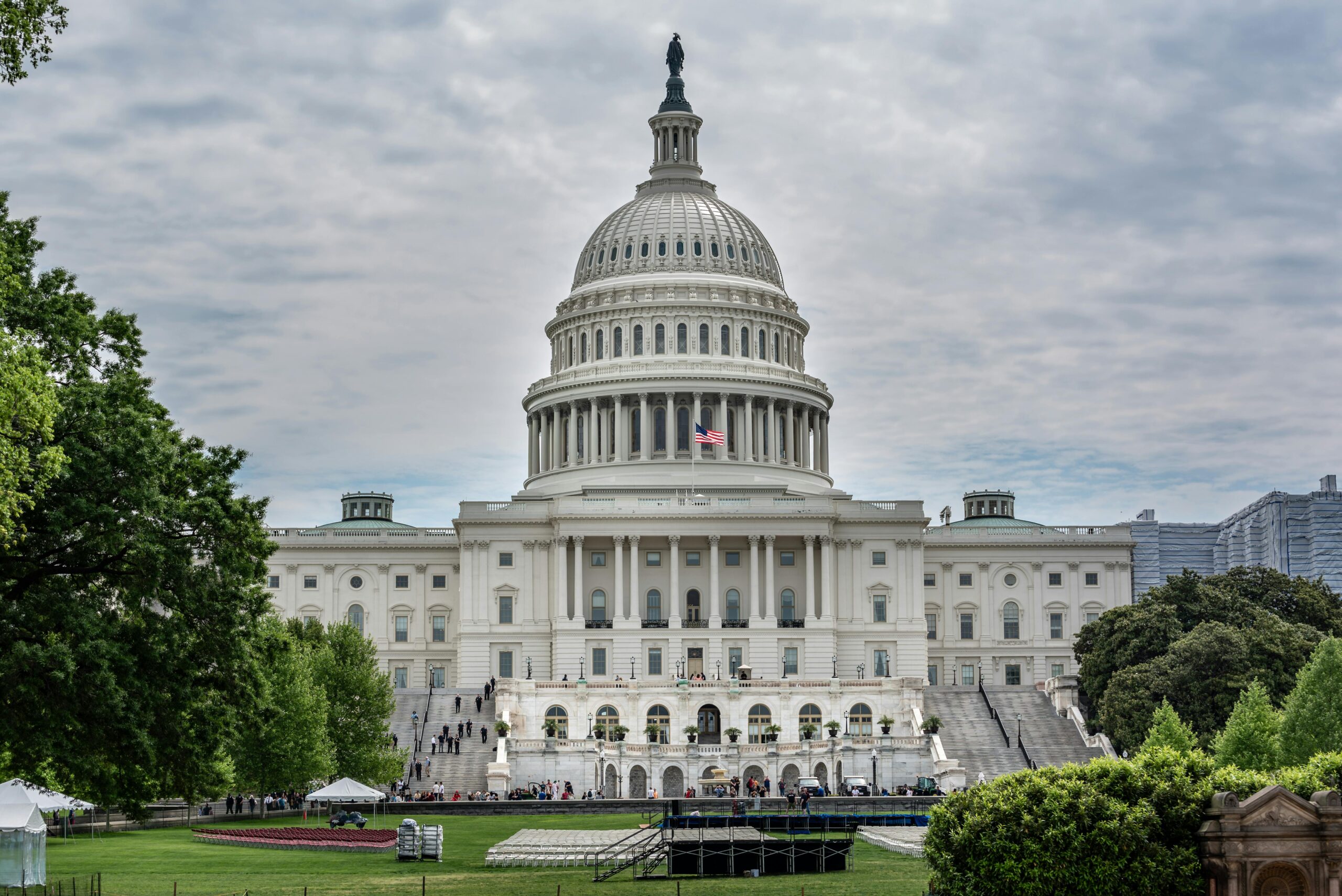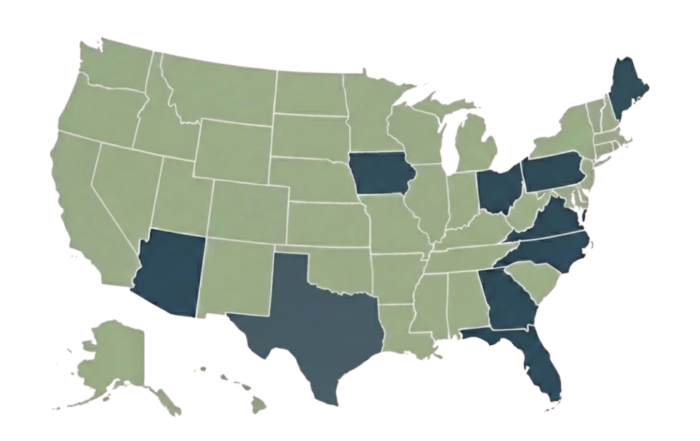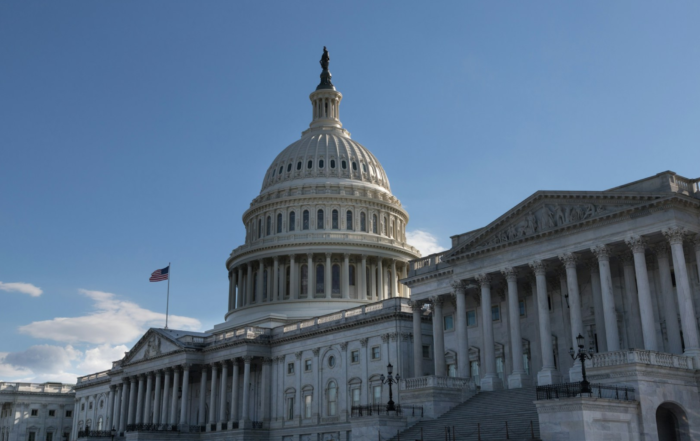
Chris Moyer
Founder & President
Recent GOP Letter Offers False Hope That Credits Will Survive
Much ink has been spilled—and plenty of podcast airwaves filled—on the fate of the clean energy tax credits in the Inflation Reduction Act (IRA), which are driving investment and production across a wide range of clean energy industries. And for good reason: these are promises the federal government made that private industry took seriously—and is now counting on.
We know that the majority of the economic benefits of these provisions are flowing directly into red states and districts. We’ve seen signals of bipartisan backing, including letters signed by 18 House Republicans last summer and 21 last month expressing vague but encouraging support for the credits.
But that’s not enough.
Anyone with a stake in this fight must do more. Many have already stepped up—groups like Clean Energy for America and the Solar Energy Industries Association are working overtime, having already organized more than 100 businesses to pressure the Republican House members who will decide what happens next. But the current trajectory is not promising, and the time to act is now.
Having worked on several presidential, Senate, and gubernatorial campaigns, I can say this moment feels like the final stretch of a campaign—when you think you’ve said everything there is to say, made every argument. Yet some voters don’t pay attention until the very end. Even for some House members, the next conversation they have with a CEO may be the first time the message really resonates. Messengers and repetition matter.
Even that may not be enough—but there’s too much at stake not to try everything.
Many business leaders with the most on the line aren’t steeped in how to influence members of Congress. Some may look at the recent letters and feel reassured that their battery plant in rural Nevada or North Carolina, for example, are safe. They assume, “Surely the federal government won’t renege on a multi-billion-dollar promise for a project that’s already delivering benefits.”
The reality? Yes, they would.
Just listen to Rep. Buddy Carter of Georgia, who signed both letters and was asked if the clean energy credits benefiting his district—in a massive way—were a red line for him: “For me, it’s not a red line. For some people on that letter, it may be. I don’t know the answer to that.”
Political Reality on Capitol Hill
Anyone who has worked on Capitol Hill—as a member, staffer, or lobbyist—won’t be surprised by this. I don’t doubt that these members want the credits to remain. They see the jobs and investment flowing into their districts.
But these are, for the most part, savvy political actors balancing competing interests. The 21 Republicans signed that letter just as the House committee with jurisdiction over the credits began drafting the reconciliation bill last month. The best-case scenario for them is that repeal language, or any alteration that hampers their usefulness, never makes it into the final bill—so they never have to vote on it. More work from them on the front end could spare them significant political fallout later. But avoiding such a vote is far from guaranteed.
The math is grim. The reconciliation bill must account for between $1.5 trillion and $3 trillion in cuts, and there are few remaining targets that don’t include the clean energy tax credits. Meanwhile, President Trump has made it clear he wants to eliminate these credits—not only because he rejects climate science and the energy transition, but also because he’s determined to dismantle a major Biden achievement. Both the numbers and the politics are working against the credits’ survival.
Timing also complicates things. The deaths of two Democratic House members and the withdrawal of Rep. Elise Stefanik’s UN Ambassador nomination have slightly expanded the GOP’s margin. Still, Speaker Mike Johnson can only afford to lose two to five votes on any given day.
Crossing Trump Could Be Career-Ending
Let’s say one of the 21 Republicans decides to draw a line in the sand and refuses to vote for a reconciliation package that includes repealing or otherwise undermining the credits. In today’s political climate, that would be an act of extraordinary courage.
And it would almost certainly end their career.
House members are always aware of the threat of a primary challenge. Those elections begin as early as next March and run through August, depending on the state. The reconciliation timeline is currently expected to land in summer or early fall—though these things often drag out. It’s like any employer who says they’re moving quickly to fill an open position—it always takes longer than they think it will.
Opposing Trump’s would-be signature legislation would immediately incur the President’s wrath. He would post on social media about the House member(s), complain about them mightily, and then have Elon Musk fund a primary challenger against them. The MAGA base—and we’ve seen this before—would turn on their members and support whomever Musk funds. The member loses their primary and is done.
They all know how this will play out—which is why it’s highly unlikely they’ll cross Trump. Add to that the fact that Trump’s approval rating is holding steady, not sinking—enough on its own to keep would-be rebels in line. A recent NBC News poll showed his approval at 47%, an all-time high, and a March 31 poll put him at 49%. With a president who is relatively popular—or at the very least, not unpopular—GOP members of Congress have little political incentive to break from the party line.
The Safer Path for Republicans
House members know this. They’re talking to their pollsters. They’re hearing from their base. And the safer political path will likely be to vote for the bill—even if it repeals the credits—and point to provisions like tax cuts or the repeal of the SALT cap as their justification. You can already imagine the press release:
“I’m proud to support this bill that will reduce taxes for thousands of hardworking families and small businesses in my district. I promised that I would work every day to lower costs, and today we’re delivering on that promise. I’m especially glad that we have finally lifted the cap on SALT deductions. While I don’t agree with every piece of this bill, such as the repeal of some clean energy tax credits, this is an overwhelmingly positive step forward for our country that will put us back on track for years to come.”
It’s hard to see what changes the current dynamic. Could Trump’s approval collapse? Could his alliance with Musk fracture? Sure. But even in that case, Trump’s political machine is raising unprecedented dollars that could be used to carry out enforcement on its own.
Still—stranger things have happened. That’s why we need everyone in this fight, right now. Business leaders, workers and labor unions, trade associations, local officials, entrepreneurs—anyone benefiting from these credits or helping build the clean energy economy—must raise their voice and keep going until the votes are cast. Schedule more meetings with members of Congress, post videos showing the real-world impact of repeal, encourage employees to call and email their representatives, write letters to the editor, host events, and speak to local and national press. Then do it all again. And again. And again.
The window to act is still open. But not for long.
Check out our recent insights and conversations:
Sign up for our newsletter
Receive updates on our work, industry news, and more.




